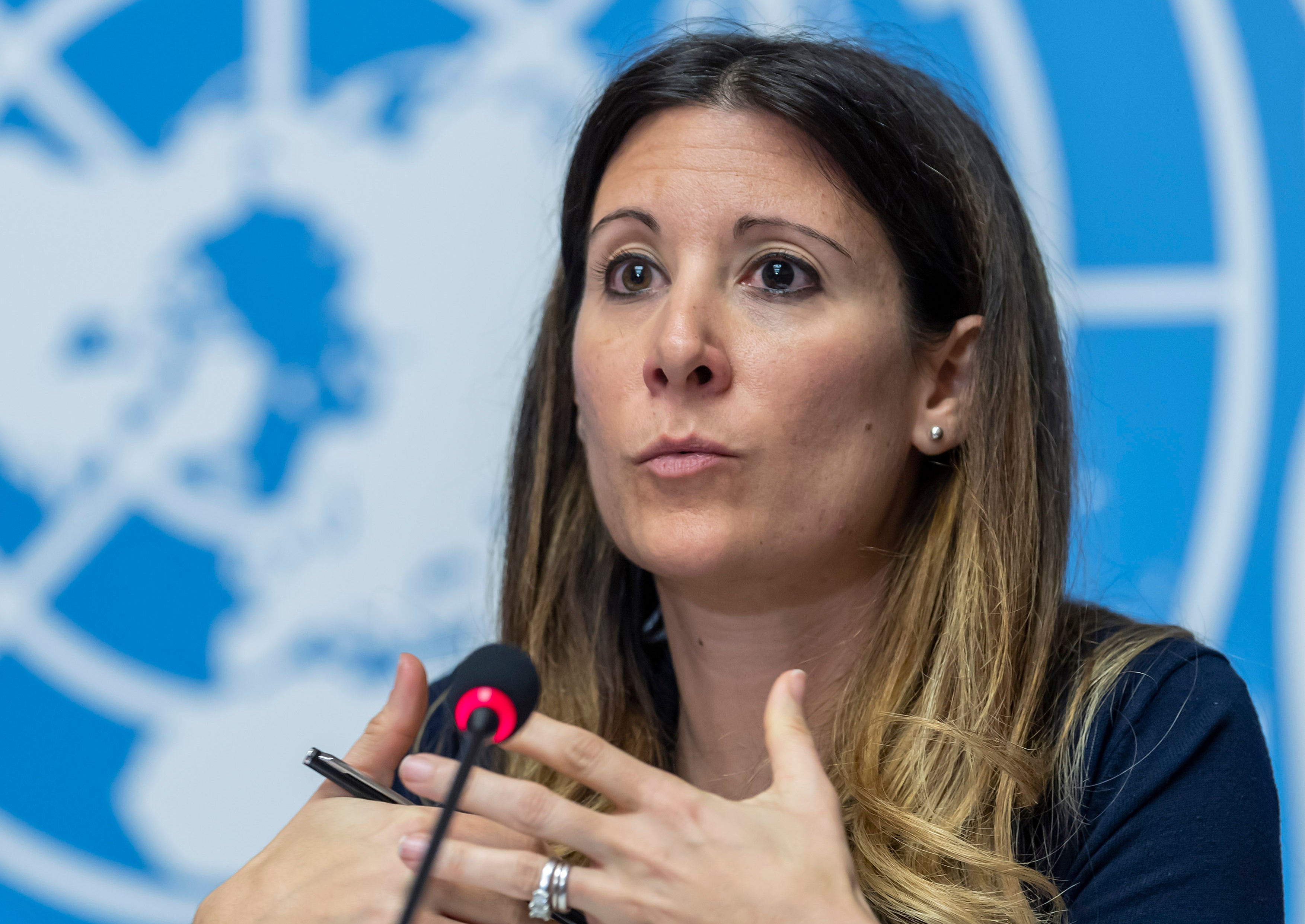UN health agency's advice for the holidays: Don't hug
The World Health Organization has an unwelcome but potentially life-saving message for the holiday season: Don’t hug

Your support helps us to tell the story
From reproductive rights to climate change to Big Tech, The Independent is on the ground when the story is developing. Whether it's investigating the financials of Elon Musk's pro-Trump PAC or producing our latest documentary, 'The A Word', which shines a light on the American women fighting for reproductive rights, we know how important it is to parse out the facts from the messaging.
At such a critical moment in US history, we need reporters on the ground. Your donation allows us to keep sending journalists to speak to both sides of the story.
The Independent is trusted by Americans across the entire political spectrum. And unlike many other quality news outlets, we choose not to lock Americans out of our reporting and analysis with paywalls. We believe quality journalism should be available to everyone, paid for by those who can afford it.
Your support makes all the difference.The World Health Organization has an unwelcome but potentially life-saving message for the holiday season: Don't hug.
To stop the spread of the coronavirus, WHO's emergencies chief said Monday that the “shocking” rate of COVID-19 cases and deaths, particularly in the U.S., means that people shouldn't get too close to their loved ones this year.
“The epidemic in the U.S. is punishing. It’s widespread," said Dr. Michael Ryan. "It’s quite frankly, shocking, to see one to two persons a minute die in the U.S. — a country with a wonderful, strong health system (and) amazing technological capacities,” he said. At the moment, the U.S. accounts for a third of all COVID-19 cases in the world, Ryan added. According to Johns Hopkins University, the country has recorded more than 280,000 coronavirus deaths to date.
Ryan was responding to a question during a news conference about whether hugs could be considered “close contact” — which the U.N. health agency has generally advised against in areas of high coronavirus transmission.
Maria Van Kerkhove, WHO’s technical lead on COVID-19, said most transmission happens among people who tend to spend a lot of time together sharing meals and indoor spaces, in workplaces or homes — but it’s sometimes hard to “disentangle” how exactly the virus was spread.
Added Ryan: “It’s a horrible thing to think that we would be here as the World Health Organization saying to people, ‘Don’t hug each other.’ It’s terrible.”
“That is the brutal reality in places like the United States right now,” he said.
In November, U.K. chief medical officer Chris Whitty also told Britons that they shouldn't hug or kiss their elderly relatives during this year's holiday season “if you want them to survive to be hugged again.”
WHO's director of vaccines, Dr. Kate O'Brien, warned that while new immunization campaigns to combat COVID-19 should help slow the pandemic, “having vaccines is not going to be a switch” that means an automatic end to the pandemic.
Last week, Britain became the first Western country to approve the experimental shot developed by Pfizer and BioNTech; the country is poised to start vaccinating its highest-risk populations on Tuesday in its biggest-ever immunization campaign.
O'Brien said that people who have concerns about receiving a COVID-19 vaccine developed in less than a year should learn more about the science, calling such worries “really legitimate questions.”